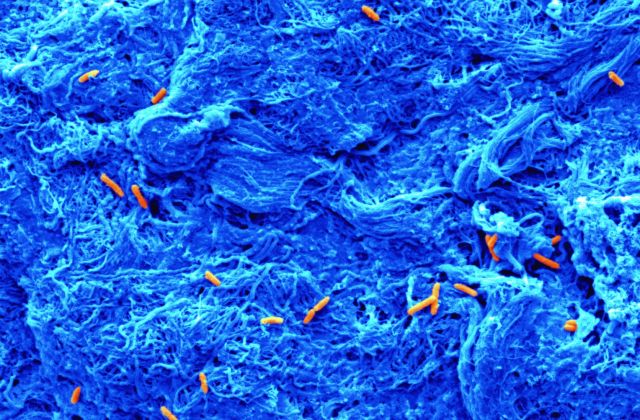
Infection Prevention and Modeling
Implant-associated infections account for approximately 45% of all hospital-contracted infections. Implant infections are caused by the formation of a biofilm, or dense matrix secreted by bacteria, which protects the bacteria and causes host chronic inflammation. Analysis of biofilm behavior is limited to non-resorbable, metallic implants, whereas many current research efforts focus on the development of biodegradable implants or decellularized bone grafts for bone repair. Collagen-based scaffolds create a protective environment for bacteria colonization and bacteria are still present within these scaffolds even after using high doses of antibiotics (10x Minimum Inhibitory Concentration). Thus, there lies a crucial need to develop models and infection prevention methodologies for resorbable bone implant materials. We plan to examine how extracellular vesicles can be used to prevent infection, and develop biomaterials to model biofilm formation in bioresorbable materials for bone repair.
M. Dewey, A. Collins, A. Tiffany, V. Barnhouse, C. Lu, V. Kolliopoulos, N. Hickok, B.A.C. Harley, Evaluation of bacterial attachment on mineralized collagen scaffolds and addition of manuka honey to increase mesenchymal stem cell osteogenesis, Biomaterials, 2023; 294:122015.